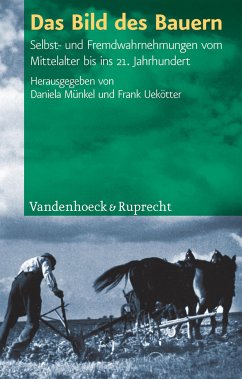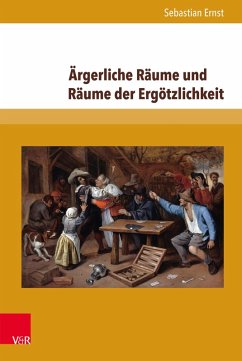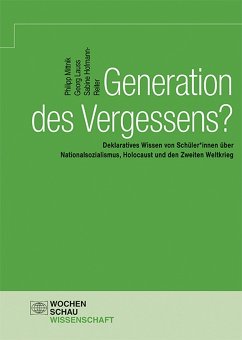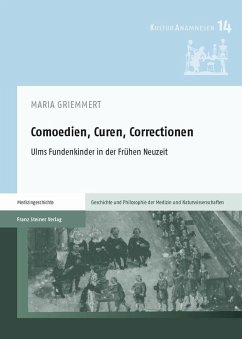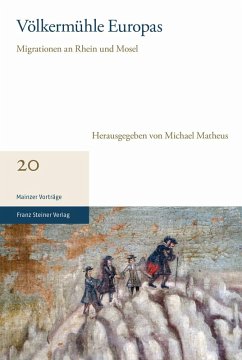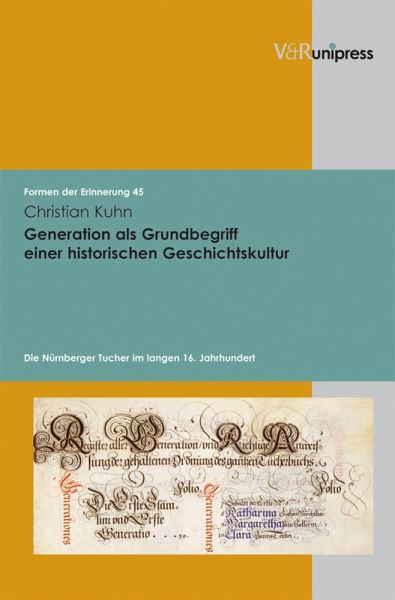
Generation als Grundbegriff einer historischen Geschichtskultur (eBook, PDF)
Die Nürnberger Tucher im langen 16. Jahrhundert

PAYBACK Punkte
0 °P sammeln!
Verschiedene Generationen schreiben die Geschichte ihrer Familie unterschiedlich. So ließe sich die lebhafte Entwicklung der Nürnberger Familiengeschichtsschreibung seit den Collectaneenbänden des Humanisten Christoph Scheurl aus dem ersten Drittel des 16. Jahrhunderts resümieren. Neben genealogischen Ausführungen zeigen vor allem die politischen, konfessionell-religiösen und geschichtstheologischen Inhalte die Dynamik im Achtungsmarkt familiärer Vergangenheiten. Die untersuchten Quellen umfassen neben neu erschlossenen Materialien auch kulturhistorisch bedeutsame Werke wie das »Große...
Verschiedene Generationen schreiben die Geschichte ihrer Familie unterschiedlich. So ließe sich die lebhafte Entwicklung der Nürnberger Familiengeschichtsschreibung seit den Collectaneenbänden des Humanisten Christoph Scheurl aus dem ersten Drittel des 16. Jahrhunderts resümieren. Neben genealogischen Ausführungen zeigen vor allem die politischen, konfessionell-religiösen und geschichtstheologischen Inhalte die Dynamik im Achtungsmarkt familiärer Vergangenheiten. Die untersuchten Quellen umfassen neben neu erschlossenen Materialien auch kulturhistorisch bedeutsame Werke wie das »Große Tucherbuch«, an dessen Jahrzehnte dauernder Fertigstellung so bedeutende Künstler wie Jost Amman mitwirkten. Das Hauptaugenmerk des Autors richtet sich auf die historische Bedeutung des Begriffs »Generation« in der brieflichen Überlieferung der Familie Tucher und in repräsentativen Geschlechterbüchern: Eine zentrale Sinnkategorie in einer Erinnerungs- und Geschichtskultur des 16. Jahrhunderts. Different generations write history in different ways. As a result of the tremendous changes in the 16th century, Nuremberg family histories were written more frequently and even replaced each other, beginning with data collections in narrative form by the humanist Christoph Scheurl mainly in early 16th century. Genealogical writing, as well as political, confessional and theological accounts are witness to the esteem competition of different family histories in the elites of this major German city. The sources consist of formerly unknown material as well as of works of significant cultural value like the »Great Book of the Tuchers«. This final version of the family histories of the Tucher family was produced in a process that lasted decades, for which some of Central Europe's best artists - like Jost Amman - were consulted. The main focus is on the historical concept of »generation«, as it was implemented in private letters and representative codices of the Tucher family's history: A key concept in this dynamic culture of history and commemoration.
Dieser Download kann aus rechtlichen Gründen nur mit Rechnungsadresse in A, B, BG, CY, CZ, D, DK, EW, E, FIN, F, GR, H, IRL, I, LT, L, LR, M, NL, PL, P, R, S, SLO, SK ausgeliefert werden.




